16 Best Butter Substitutes for Cooking and Baking
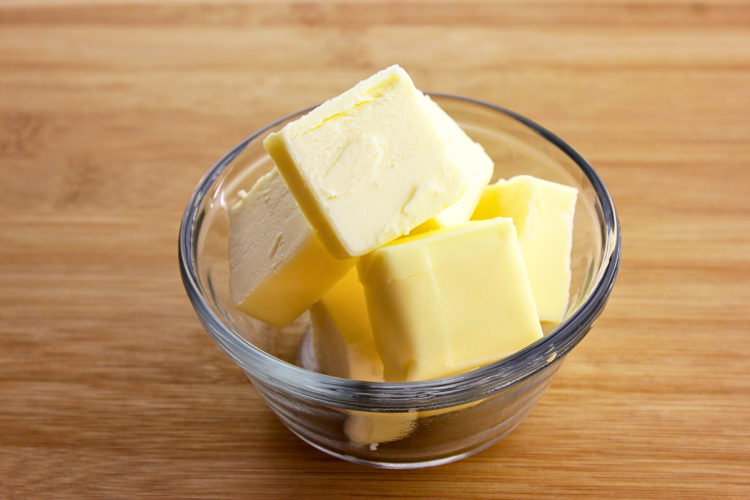
Butter and butter substitutes make life easier and more convenient when baking, sautéing, frying or simmering. This versatile kitchen staple is also a favorite spread for sandwiches, toast and baked goods of all kinds. Famous chefs from Julia Child and Alice Waters to Paula Deen and Anthony Bourdain have regaled the benefits of butter.
Rich, creamy and sometimes sweet, butter adds flavor, form and consistency to recipes. But what do you do when you’ve run out of this tasty ingredient? Or, maybe you follow a plant-based diet and are on the search for dairy-free butter substitutes. Whether your favorite form of butter is salted, unsalted, clarified or whipped, it’s helpful to have an alternative on hand. Let's find out what foods and ingredients make great substitutes.
What Is the Purpose of Butter in Cooking and Baking?
Butter serves several purposes in cooking, baking and frying. It gives structure and texture to recipes and creates a balanced profile of rich and delicious flavor. In baking, butter works by holding in moisture, which is what allows baked goods like bread and biscuits to rise. It also keeps ingredients from sticking together and adds a creamy texture to mashed potatoes. Soft sticks and a spoonful of butter melt evenly and provide consistent flavor.
Are you interested in learning new cooking techniques, preparing international cuisines and discovering how to substitute butter and other ingredients in recipes? Consider joining cooking classes near you. Led by gourmet chefs, these sessions explore basic kitchen safety, knife skills, baking techniques and much more. You can even take online cooking classes from the comfort and convenience of your own kitchen.
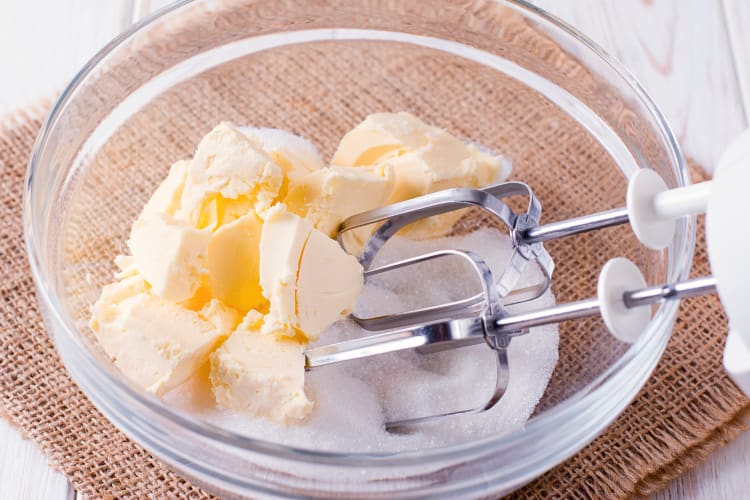
16 Good Substitutes for Butter
1. Olive and Vegetable Oil
Can you substitute oil for butter? Yes, olive and vegetable oil are excellent substitutes for baking, sautéing and frying. It’s one of the best butter substitutes for cookies, cakes and recipes that require melted butter. Vegetable oil has a neutral flavor, whereas olive oil is perfect for infusing a fruitier flavor profile. While these oils provide a tender consistency, they do tend to make a recipe soggier, so be aware of that. To use it as a butter substitute, use three-quarters of a cup of oil for one cup of butter. For melted butter recipes, you can use a 1:1 ratio.
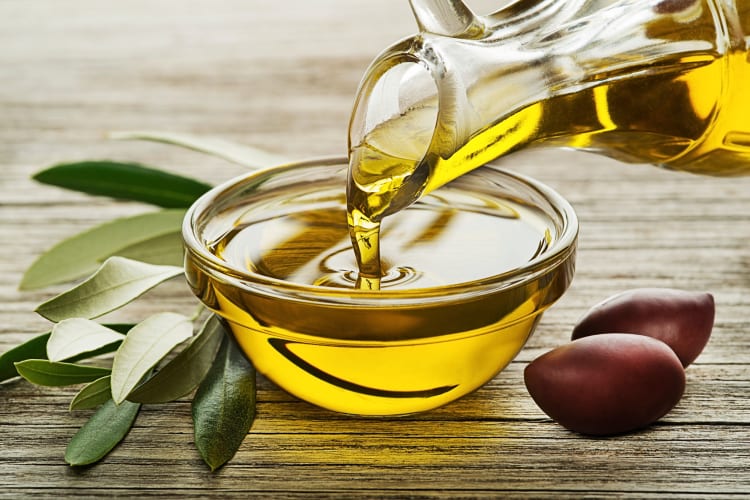
2. Coconut Oil
Ready to find out how to bring a tropical touch to your favorite baked goods or sautéed recipes? Reach for either solid or liquid coconut oil, which both deliver crispness to cookies and breads. Use in a 1:1 ratio when using as an alternative to butter.

3. Unsweetened Apple Sauce
Apple sauce is one of the most popular and well-known butter substitutes to make lighter versions of your favorite recipes. It’s best used for sweet recipes like muffins. You may want to adjust the sugar levels to prevent an overly sweet batch of blueberry muffins or quick bread. Use apple sauce in a 1:1 ratio.
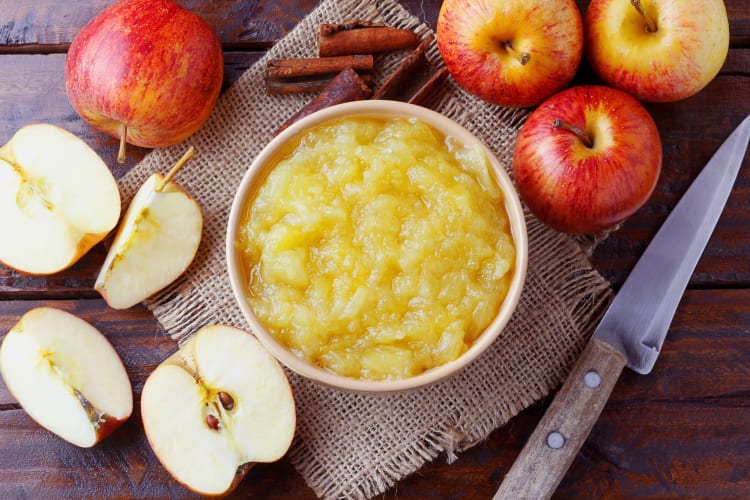
4. Cream Cheese
Cream cheese is a terrific butter alternative for recipes such as chocolate chip cookies, cream cheese cookies and strawberry cream cheese. You’ll want to strain cream cheese if it’s on the wetter side. This procedure ensures that the recipe doesn’t get too much moisture, which can lead to a soggy cookie. Cream cheese is best used for savory recipes and as a spread on bread and bagels. You can also use mascarpone or ricotta cheese as a butter substitute. Use full-fat cream cheese in a 1:1 ratio for best results.
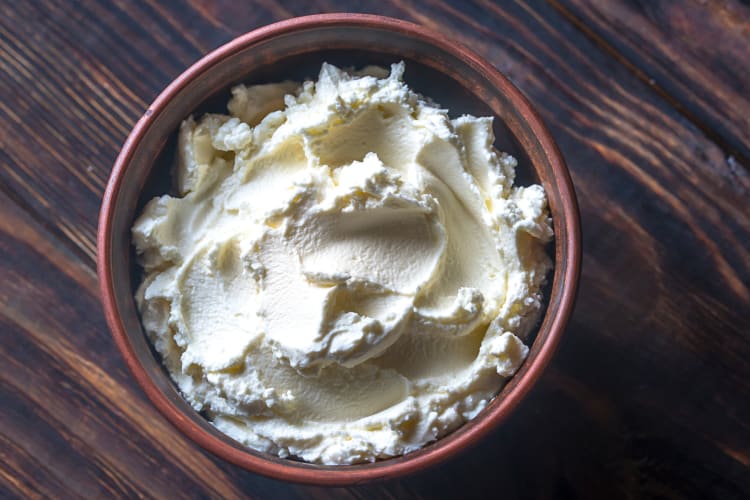
5. Shortening
Can you substitute butter for shortening? Yes, shortening is a wonderful butter substitute due to its neutral flavor profile. Because of this, you may want to try butter-flavored shortening over regular varieties. Use shortening in a 1:1 ratio when baking or frying.

6. Nut Butter
Nut butter, like those made from cashews and almonds, gives a creamy consistency to items like sweet potato toast, cookies and brownies. Often considered healthier than animal fats, nut butter is a delicious addition to vegan or dairy-free diets. Be aware that because of the nuts, recipes will usually have a nuttier flavor. Use in a 1:1 ratio for a butter substitute.

7. Vegan Butter
For those on a dairy-free diet, vegan butter is a wonderful butter substitute when baking cookies and bread or whipping up buttercream frosting. Vegan butter is made from vegetable oils such as coconut or palm as well as nuts and seeds. Use it in a 1:1 ratio as a butter substitute for baking.
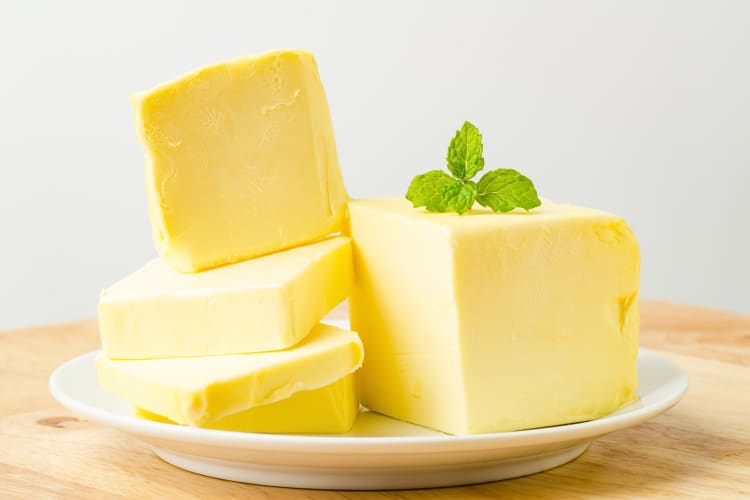
8. Greek Yogurt
Another substitute for butter, Greek yogurt lends a creamy consistency and a tangy flavor to cookies and cakes. With a taste similar to buttermilk, yogurt serves as a way to lighten baked items. The consistency is close to that of solid butter. Use full-fat yogurt in a 1:1 ratio as a butter substitute if using one cup or less of butter. Adjust the recipe’s flour level if your recipe calls for more than a cup of butter. This helps make up for the added moisture in the yogurt.
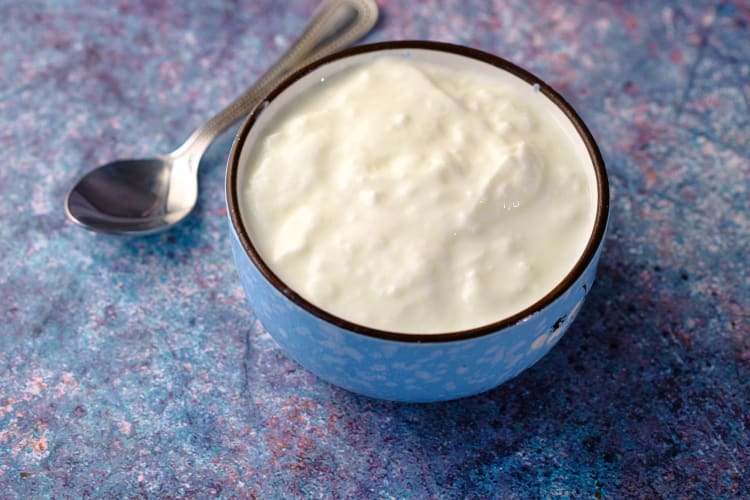
9. Mayonnaise
With a rich flavor, mayonnaise is one of the best butter substitutes for cookies, BLT sandwiches, chocolate cakes, scones and other recipes that call for melted butter. It also gives a crisp layer to grilled cheese sandwiches. Full-fat mayo is recommended for the best results when used as a butter substitute. Use in a 1:1 ratio, and only in recipes that can stand extra liquid, as the mayonnaise has oil in it.
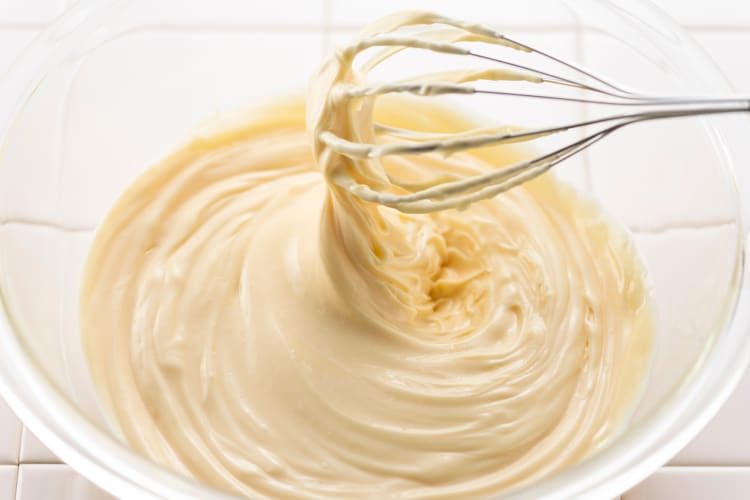
10. Mashed Bananas
Are you a fan of the tropical flavor of bananas? For a dairy-free butter substitute, mashed bananas are an excellent choice. Mash the banana until it forms a smooth consistency before adding it to pancakes and bread. Use bananas in sweet recipes or where you would like a fruity flavor. Bananas provide more water, so keep that in mind when choosing your butter substitute. Use in a 1:1 ratio.

11. Pumpkin Purée
If pumpkin is your favorite flavor, whether it’s fall or the middle of summer, go ahead and use it. Pumpkin purée is an excellent way to add a sweet and creamy touch to bars and other baked goods. It will also lend them a lovely orange hue. You’ll want to use a food processor to blend the pumpkin into a smooth consistency. Use three-quarters of a cup of pumpkin purée for every one cup of butter.
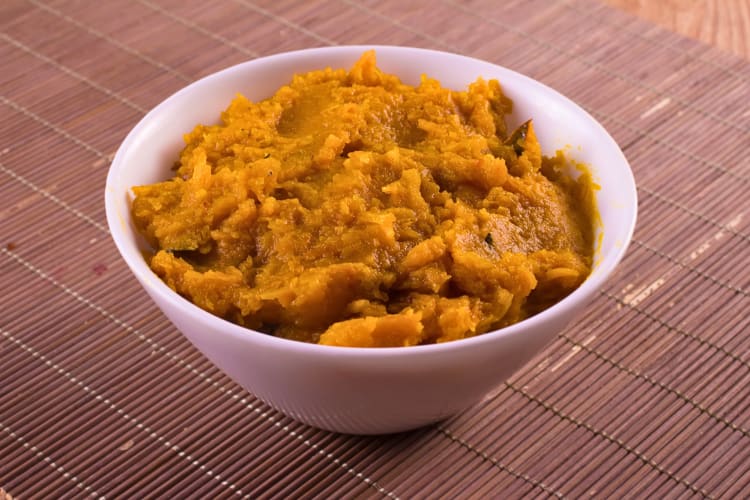
12. Ghee
Ghee is a type of clarified butter that’s created through a process of cooking and straining to be separated from milk solids. This butter substitute delivers a rich flavor to baked goods, however, the texture may not be the same. It’s a great alternative for recipes such as green bean casseroles. Since the water has been removed, ghee has a high smoke point, making it a great butter substitute when used for fried eggs, grilled cheese sandwiches and sautéed chicken breasts.

13. Hummus
Hummus, which is made with chickpeas, tahini, olive oil, lemon and spices, makes a creamy and delicious butter substitute. Use hummus in sauces and dips or as a spread for bread and sandwiches.
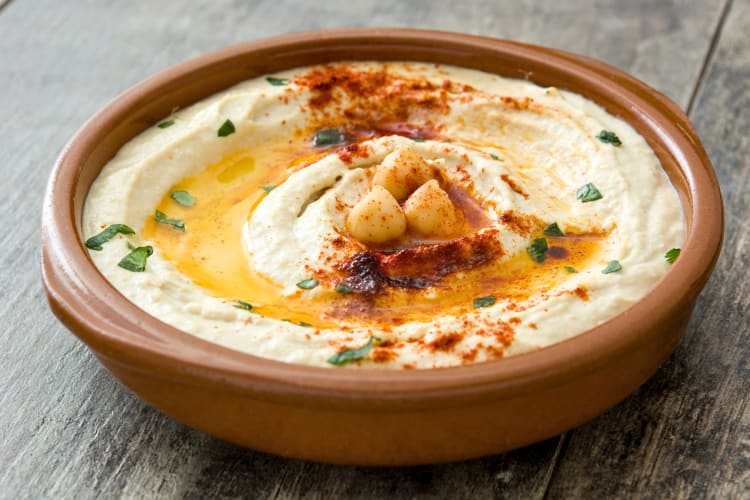
14. Margarine
Margarine is one of the most used and best butter substitutes for baking, especially cookies, as it delivers a similar flavor and consistency as butter. Margarine creates a soft texture like butter, which makes it perfect for cookies, muffins, cakes and many other recipes. It’s also excellent for helping cookies keep that perfect round shape. Use in a 1:1 ratio when cooking or baking.
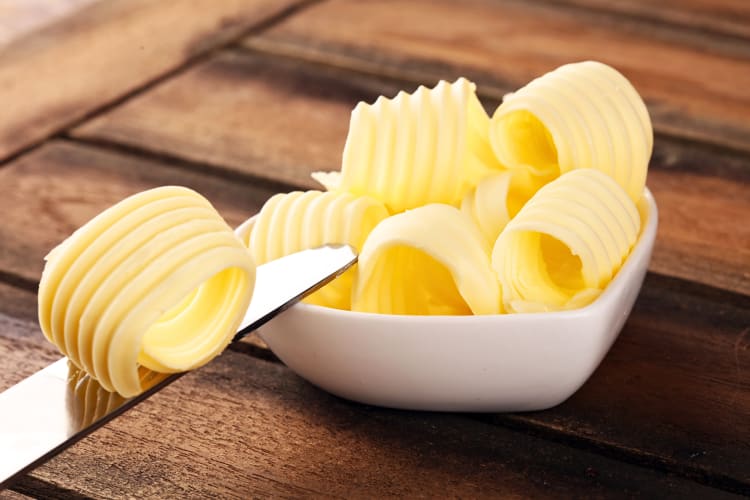
15. Avocado Oil
If you’ve run out of butter as you're about to bake your favorite cookies or breads, reach for that bottle of avocado oil. It has a fruit-inspired taste, so use it in blueberry scones, cranberry bars or other fruity treats. Avocado oil can also be used in cooking for sautéing and searing chicken, fish and beef. It’s a great high-heat butter substitute for frying doughnuts and beignets. Use in a 1:1 ratio whether using puréed or oil forms of avocado.

16. Buttermilk
Can buttermilk substitute for butter? Yes, it most certainly can. In fact, it is a better butter substitute for cookies and other recipes than other options. It provides moisture and flavor and can help to create a plump loaf of bread, a gooey batch of chocolate chip cookies or a platter of fluffy pancakes. Use half a cup of buttermilk for every one cup of butter. You can also use a quarter cup of buttermilk and a quarter cup of unsweetened applesauce to make the equivalent of one cup of butter.
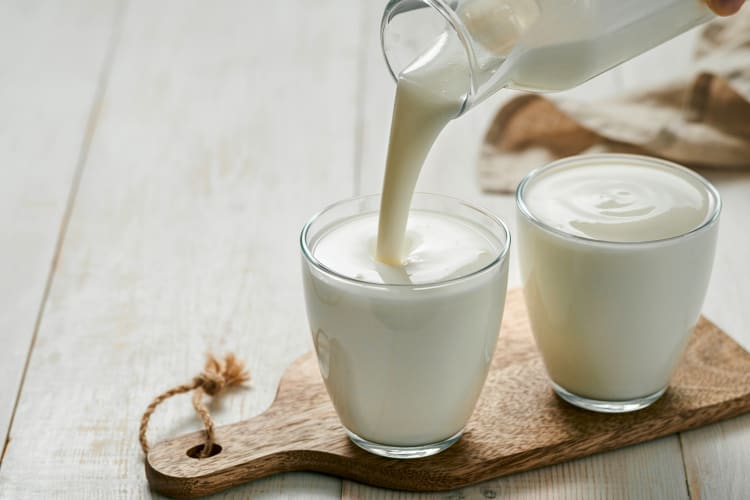
Well, that's reassuring! No more last-minute trips to the shop to grab extra sticks of the good stuff. Instead, have a rummage in your cupboard and let one of the above substitutes save the day. If you are substituting butter, it pays to keep a few points in mind. Oils make better butter substitutes for recipes that call for melted butter, while pastries, cakes and breads fare better with a solid substitute like margarine or shortening. If you’re preparing a spread for sandwiches or baked goods, use hummus, cream cheese or nut butter for a delicious alternative to butter.
The last thing to remember next time you look to change things up is to enjoy it! Drawing on these butter substitutes is a culinary skill in itself, building your confidence in the kitchen and leaving you well-equipped to take on new recipes as well as novel takes on your old favorites, all with the help of a few simple butter substitutes.
For even more ways to explore your favorite foods, check out other experiences happening on Cozymeal.
